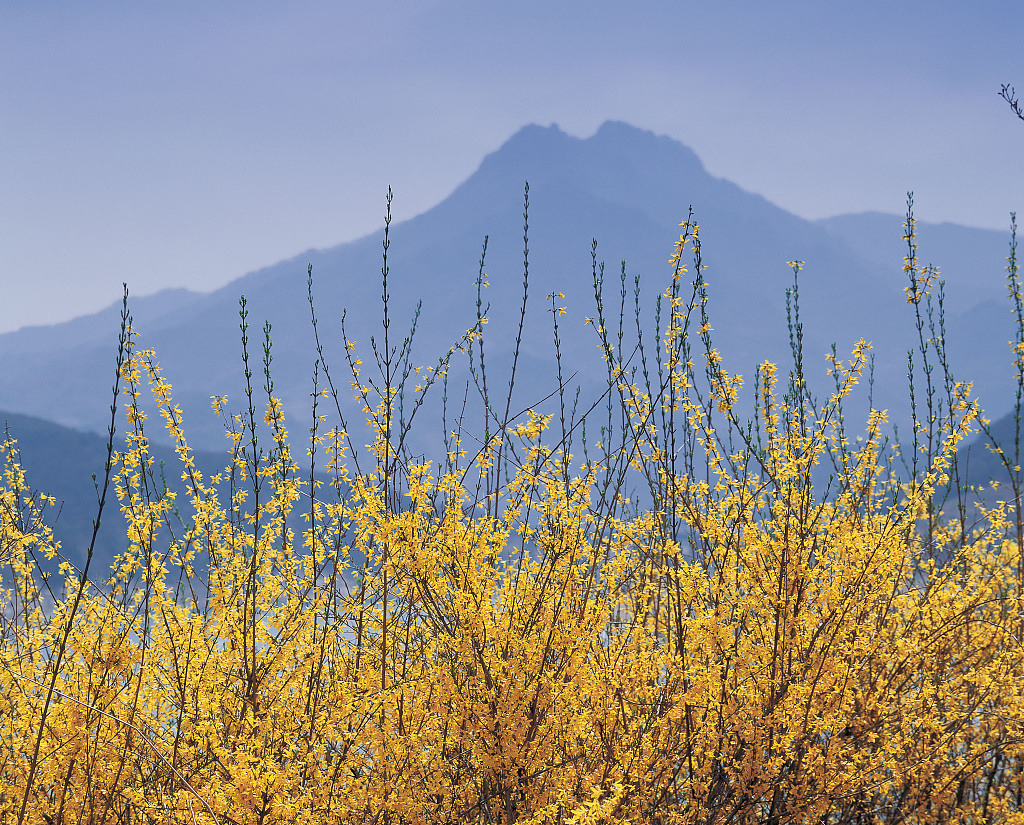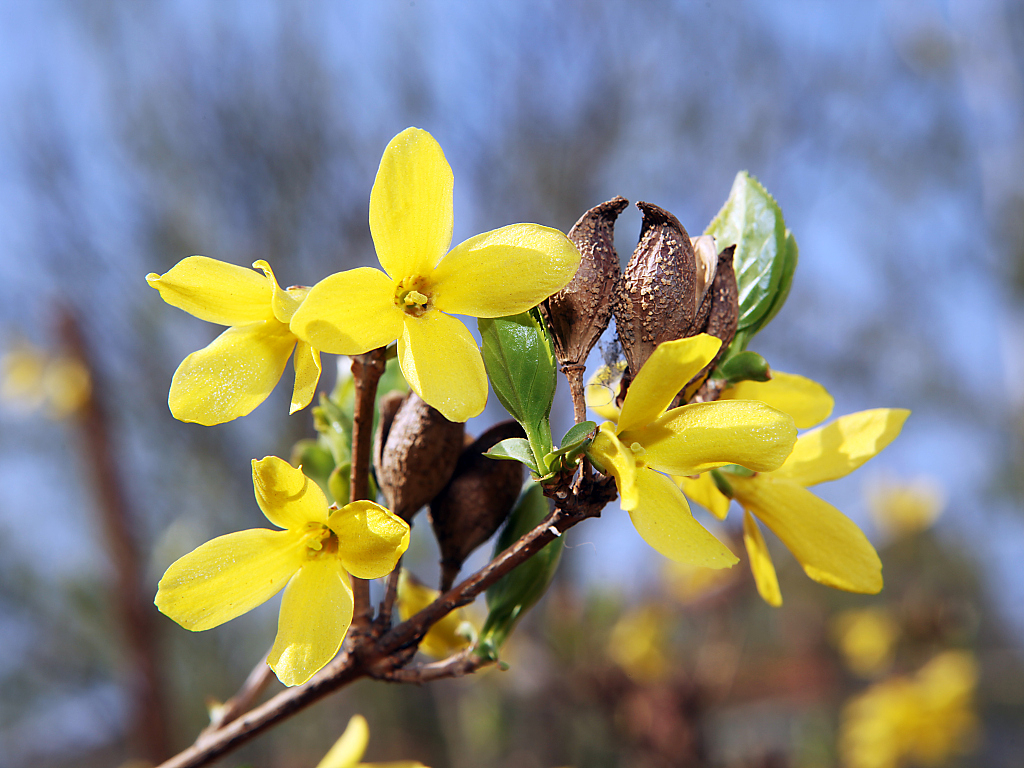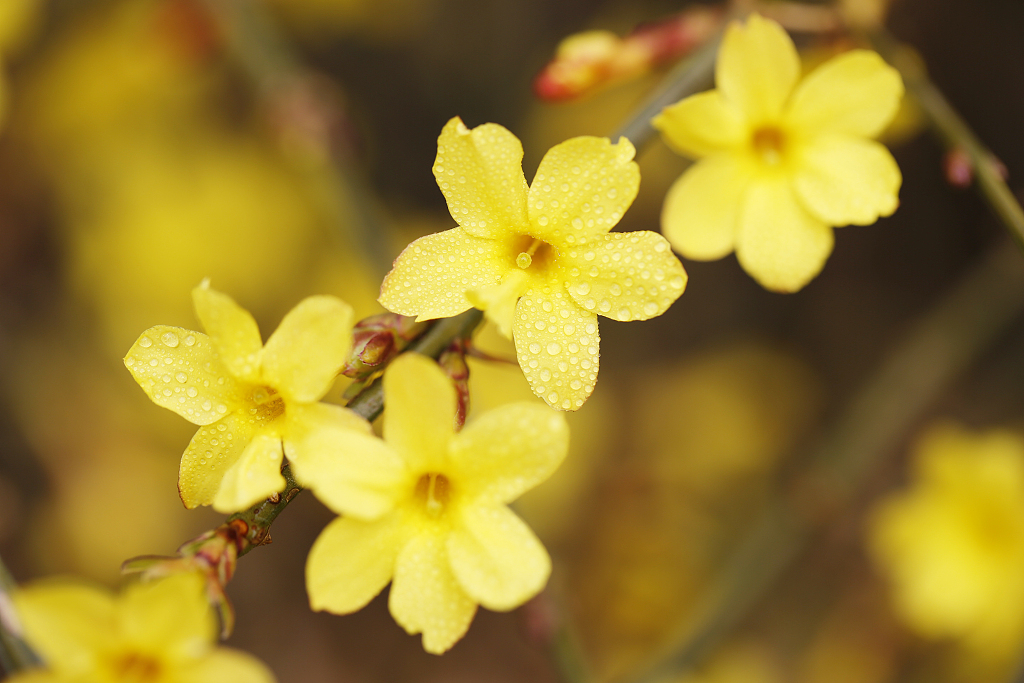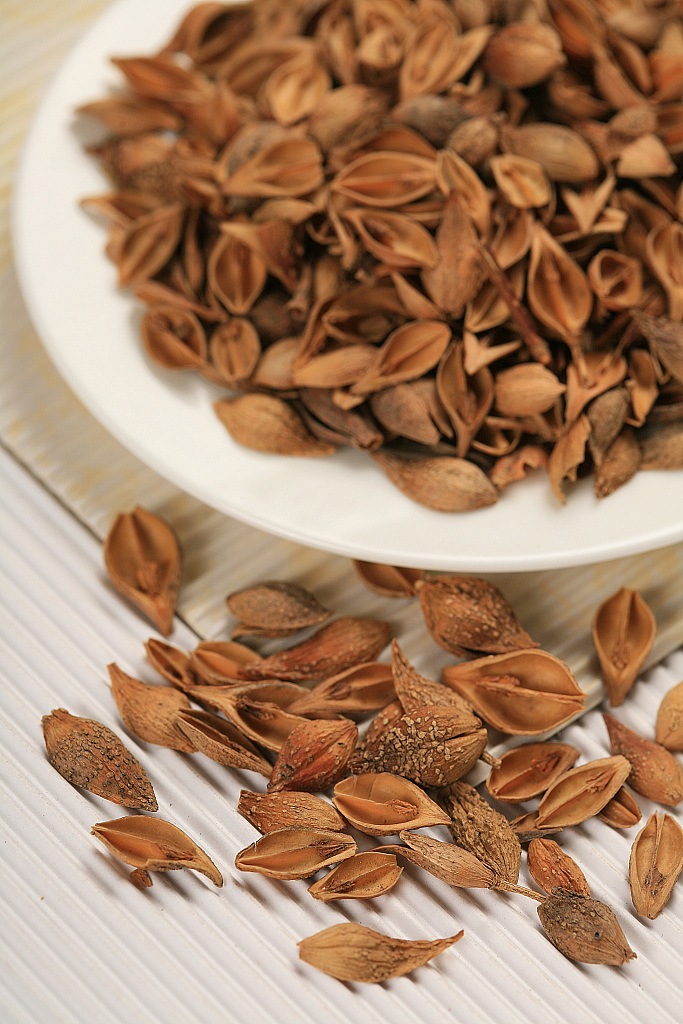
Branches of forsythia. /VCG Photo
Branches of forsythia. /VCG Photo
Forsythia is one of the earliest flowers blooming in spring, between March and May. It is a popular landscape plant known for its bare branches filled with brilliant yellow flowers. Jasminum nudiflorum is sometimes mistaken for forsythia because of its similar color.

The forsythia flower has four petals. /VCG Photo
The forsythia flower has four petals. /VCG Photo

The six-petaled Jasminum nudiflorum. /VCG Photo
The six-petaled Jasminum nudiflorum. /VCG Photo
It has four petals and its branches stretch upward, while the Jasminum nudiflorum flower has six petals with drooping branches.

Forsythia is easy to grow and can tolerate partial shade. /VCG Photo
Forsythia is easy to grow and can tolerate partial shade. /VCG Photo
Forsythia is native to China and has been cultivated in China and Japan for a considerable time. The plant occurs in Anhui, Hebei, Henan, Hubei, Shaanxi, Shandong, Shanxi and Sichuan provinces. It's easy to grow because it is hardy and can tolerate partial shade, but it grows best in full sun.

The dry fruits of forsythia are used in traditional Chinese medicine. /VCG Photo
The dry fruits of forsythia are used in traditional Chinese medicine. /VCG Photo
During July and August the forsythia produces fruit, which is often used in traditional Chinese medicine, proven by some of the earliest Chinese medical texts dating back to some 4,000 years. It is often prescribed in combination with other plants and may have anti-inflammatory and antipyretic effects.
China's Flora Tour
From the wetlands along the coast to the dense rain forests hidden in southwestern China, all boast an array of plant species. In this series, we will go on a tour to learn about some of the most representative flora in different provinces and see how they live in harmony with the local geography and climate.
(Cover photo via VCG, designed by CGTN's Du Chenxin.)
(If you want to contribute and have specific expertise, please contact us at nature@cgtn.com.)